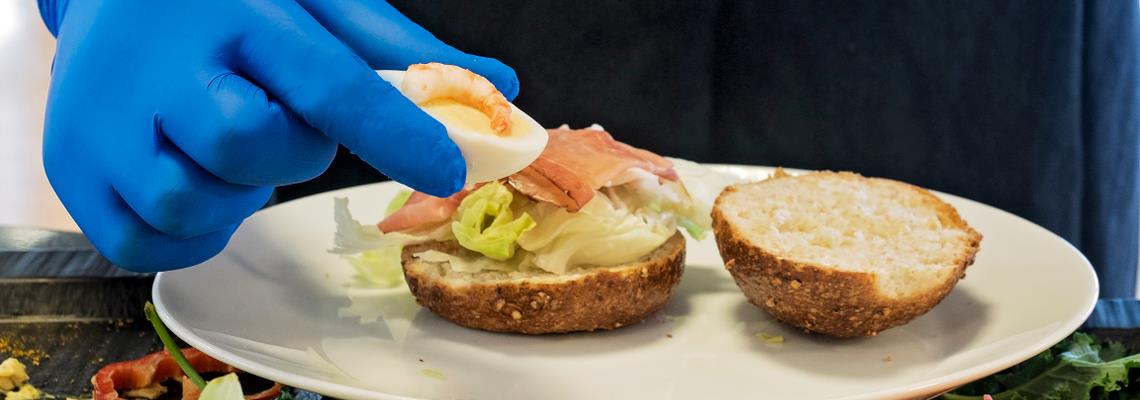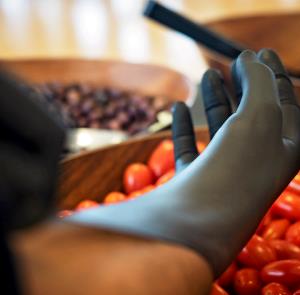An outbreak of listeria can have serious consequences for the guests of the infected kitchen, especially if the infection breaks out in hospitals or nursing homes, where elderly, pregnant women and others with weakened immune systems can get very ill.
An infection with listeria can cause symptoms that requires hospitalization and can be fatal in worst case scenarios.
Poor kitchen hygiene creates a fantastic environment for bacteria. One enemy in many kitchens is the listeria bacteria, which can be fatal. Fortunately, the solution is simple: the best way to avoid listeria outbreaks is to properly clean and disinfect all kitchen surfaces and equipment.
When it comes to hygiene, the kitchen is a particularly important place to follow a strict process. Every day you and your colleagues come into contact with foods that may contain bacteria or vira. An enemy in many kitchens – industrial and private – is listeria.
What is listeria?
Listeria is a bacteria that occurs naturally in soil, on plants, in waste water, in the intestines of humans and animals, and on many foods. The majority of people ingest listeria bacteria daily without even knowing. The consummation of foods containing listeria generally not a problem for people with a healthy immune system.
However, people with weakened immune systems and pregnant women are vulnerable groups with higher risk of being infected and developing the very severe disease, listeriosis. The symptoms of listeriosis are much like a flu; headache, fever and muscle pain. If not treated, listeriosis can develop into meningitis and blood poisoning and can be fatal.
In which foods do you find listeria?
Listeria can be found on many different kinds of foods. However, the main problems with listeria are often seen in raw foods that have not been heated to least 75 degrees Celsius, which is where listeria bacteria die. Listeria is often seen in these foods:
- Cold meat
- Cold smoked fish
- Ready-made meals
- Cheese and other dairy products from non-pasteurized milk.
Even though a food has been heated to 75 degrees Celsius, the finished product is not safe from being infected with listeria. Listeria is a robust bacteria that can survive on many different surfaces in the kitchen environment. When you prepare your foods, you risk cross contamination of your dishes, even if the foods have been sufficiently heated.
The only way to avoid foods being contaminated with listeria is to clean and disinfect your kitchen properly on a regular basis.
Did you know...
Listeria is a particular difficult bacteria to handle because it is very robust.
It can survive and grow in cold environments down to 3-4 degrees Celsius (the recommended temperature in refrigerators).
This means that listeria can survive in environments that are not normally suitable for bacteria.
Prevent Listeria with procedures for cleaning and disinfection
Maintaining high standards for kitchen hygiene requires guidelines and awareness about listeria and bacteria in general. Find out what to keep in mind.
Cleaning - it's all about protocols
According to WHO, health care facilities should employ specific and routine-based hygiene and cleaning guidelines, also referred to as IPC (Infection Prevention & Control) in order to prevent the spread of HAI’s.





